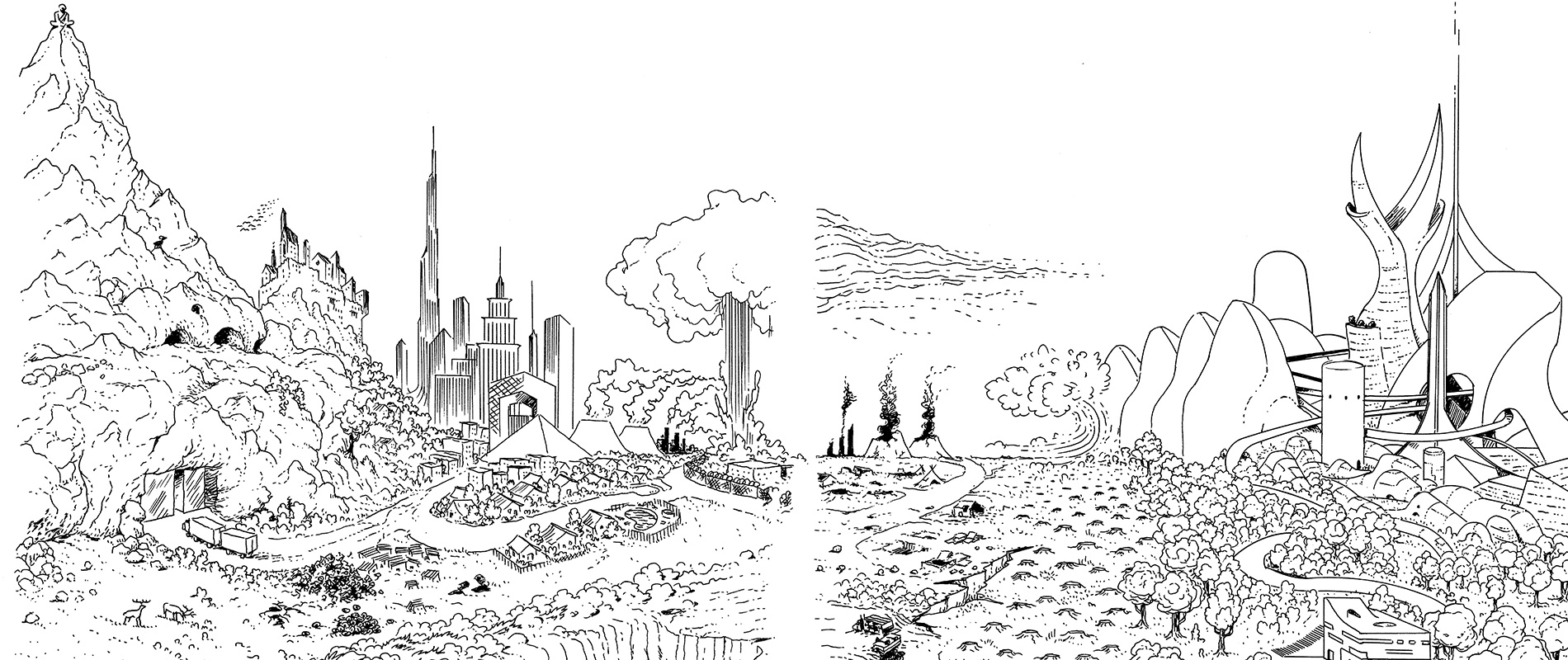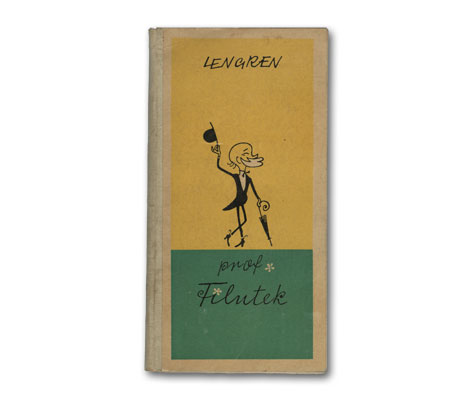A looooong time ago I promised a series of posts about Polish comics. I never got around to starting that until now. Without further delay, here’s the first installment about Zbigniew Lengren’s, Filutek, a long-running cartoon known to practically every Polish person.



The Polish Peanuts
One of the first comics I remember looking at was Professor Filutek by Zbigniew Lengren (1919-2003). It ran weekly in the Przekrój magazine for over 50 years, a record run in Polish comics. It was ubiquitous in Poland. The closest analog in the USA in terms of name recognition was probably Peanuts, though Filutek never achieved the kind of commercialized ubiquity of Peanuts merchandising. As far as I know, there were no Filutek toys. Perhaps that was just how things worked in Communist Poland. Or maybe it’s because Filutek had a more “New Yorker” sensibility and wasn’t translatable into plastic baubles. I don’t know. There was an animated cartoon though. I’ve never seen it.



Gentle Modernism
I recently stumbled on a small collection of the Professor Filutek strips on Abe Books. I was struck by a kind of gentle modernism that’s rarely seen in western cartoons. The art is minimalist, with that 1950’s clean pen line. Lengren renders the characters and objects with precision and economy. Professor Filutek is a kind of cartoon version of Monsieur Hulot. Absent-minded, generous, Filutek resembles a child-at-heart full of wonder at the everyday chaos of a rapidly changing world.
How Old is Filutek?
The introduction to the book claims that Lengren himself didn’t know the age of Professor Filutek. According to the cartoonist, the character’s beard might not be real! He implied that Filutek glued it on!
Filutek often interacts with children. He waits in line with kids to see a Tarzan movie, buys art supplies to help a boy create better graffiti on a wall, or entertains a toddler with a bicycle pump. But this isn’t a simple endorsement of childishness. In a famous strip, Professor Filutek corrects the spelling of vulgar graffiti. Write on walls if you must, but at least learn how to spell! Break rules, but do it well.
Gentle Zen Master
In some ways he reminds me of eccentric Zen Masters; older than dirt, wise, but with the impishness of a child. The strip is playfully didactic in ways similar to other cultural products of Eastern Europe of that time (for example, the Czechoslovak Krtek and Russian Cheburashka cartoons). It encourages playful co-operation, generosity, and good manners. It punishes selfishness, greed, and rudeness. The possibility of human progress and betterment is palpable in every frame.



Cartoon Optimism
I’m not sure if that’s true of all Filutek cartoons. The collection I have is from 1957. At that point in time, the communist project in Poland was still young. It was a few years after Stalin’s death and a only year after the death of Poland’s Stalinist Prime Minister Boleslaw Bierut. These were the early years of the cultural thaw, de-Stalinization, and Roman Polanski‘s early films. It was an optimistic time. It would be interesting to compare Lengren’s work from the 50 years of its existence. I wonder if Poland’s numerous political shifts would be detectable in the absent-minded life of Professor Filutek? The center cartoon above may be a playful reminder of the frequent power outages that plagued Poland during various periods of its Communist history. Or maybe it is just a general comment on man vs. technology?

Zbigniew Lengren’s memorial featuring Filutek’s dog Fafik, his umbrella, and hat in the Old Town in Toruń, Poland. Fafik joined the cast of characters later after the collection pictured above appeared. Photo from Wikipedia.

